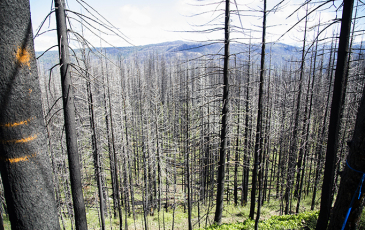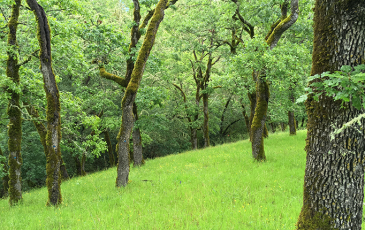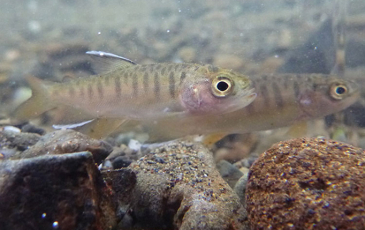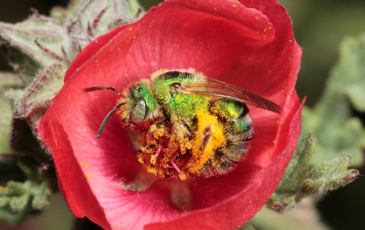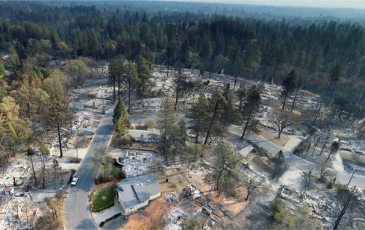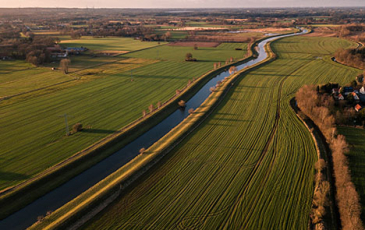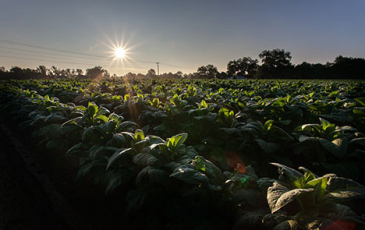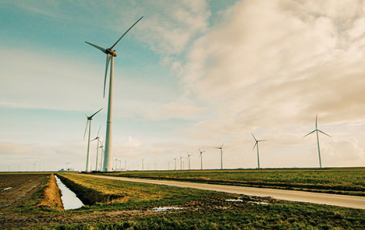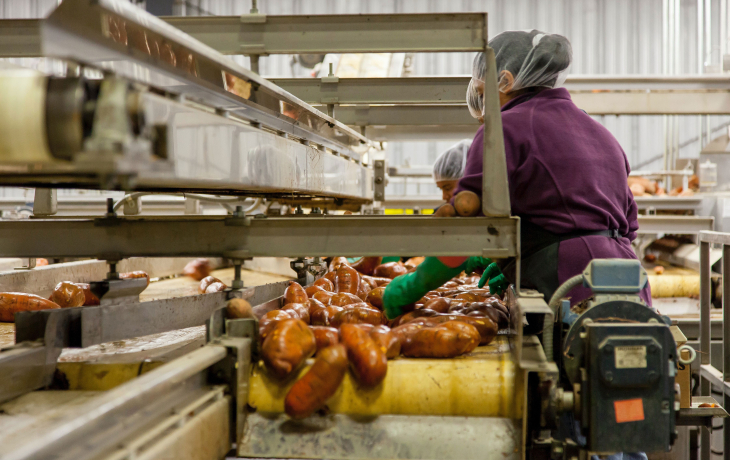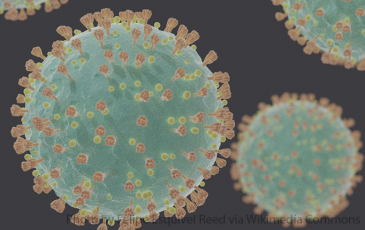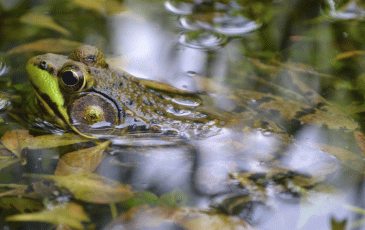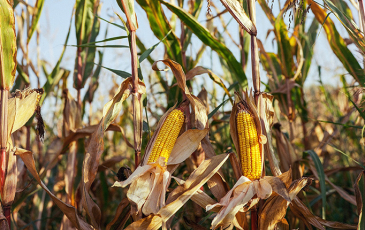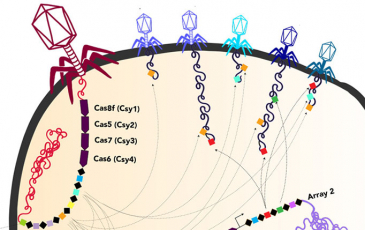In a study in Frontiers in Ecology and the Environment, professor Scott Stephens explains the interactions between fire management and ecosystem health.
Research shows potential shifts in distribution of California species
A special issue of Frontiers in Ecology and the Environment on climate refugia features research from professor and dean of the College David Ackerly.
Drought ‘refuges’ protect young coho salmon from summer heat
Researchers in the Department of Environmental Science, Policy, and Management tracked nearly 20,000 fish over the seven-year study.
Scientists pivot to COVID-19 research, hoping for quick results to deal with pandemic
Nutritional Sciences & Toxicology professors Anders Näär and Dan Nomura receive funding to research a drug for COVID-19.
Breakthroughs Spring 2020 Issue
In this latest issue of the magazine, read about Gordon Rausser's landmark gift to the College, our alumni in academia, and much more.
Hedgerows near crops shown to bolster pollinators
Research from professor Gordon Frankie, the principal investigator of the Urban Bee Lab, is featured in a recent UCANR blog.
Researcher calls for social solidarity in British Medical Journal
In an article in BMJ Opinion, associate professor Seth Holmes stresses the importance of connectivity and awareness as societies re-open this summer.
Reducing wildfire risk includes building communities to coexist with fire
Cooperative Extension specialist Van Butsic co-authors a study on fire management in the wildland-urban interface.
Forget carbon tariffs: Existing trade policies give dirty industries a boost
Agricultural & Resources Economics professor Joe Shapiro authors a study on environmental biases in trade policy.
Irrigation expansion could feed 800 million more people
A recent study, authored by professor Paolo D’Odorico and PhD candidate Lorenzo Rosa, shows potentially significant gains from sustainable irrigation expansion.
Researchers connect ICE activities to public health risks
Researcher Miriam Magaña Lopez and associate professor Seth Holmes examine how raids, detention, and deportation impact public health during the COVID-19 outbreak.
Local food reliance infeasible for global majority
Research co-authored by professor Paolo D’Odorico finds that only one-third of the world population can rely on locally-produced food alone.
Analysis examines how economic ideas have shaped climate policy
The study, co-authored by associate professor Jonas Meckling, analyzes how shifts in economic thinking have guided climate mitigation policies.
Two researchers comment on food workers and Covid-19
In an op-ed in the Guardian, graduate student Vera Chang and professor Seth Holmes write about food workers and safety during the Covid-19 outbreak.
New coronavirus video explains molecular virology
Watch professor of plant and microbial biology Britt Glaunsinger break down the latest scientific understanding of coronaviruses.
Reanalysis of global amphibian crisis study finds important flaws
Researchers in the Rosenblum lab found that the main conclusions of the study lacked evidence and were unreproducible.
Researchers find crop rotation boosts corn yields, even in drought
The study, led by professor Timothy Bowles, suggests that increasing crop diversification provides various benefits.
Vaccination strategies for elderly patients may not decrease mortality
Associate professor Michael Anderson analyzes the efficacy of vaccination programs that target elderly populations.
Women firefighters face high exposure to toxic ‘forever chemicals’
ESPM professor Rachel Morello-Frosch co-authored the study, published in the journal Environmental Science and Technology.
Huge bacteria-eating viruses narrow gap between life and non-life
Berkeley researchers and their collaborators identify viruses that exhibit living organism-associated characteristics.


